java框架之Spring(4)-Spring整合Hibernate和Struts2
准备
导包
Struts2
导入 Struts2 zip 包解压目录下 'apps/struts-blank.war' 中所有 jar 包,如下:
- asm-3.3.jar
- asm-commons-3.3.jar
- asm-tree-3.3.jar
- commons-fileupload-1.4.jar
- commons-io-2.2.jar
- commons-lang3-3.2.jar
- freemarker-2.3.28.jar
- javassist-3.11.0.GA.jar
- log4j-api-2.3.jar # 可选
- log4j-core-2.3.jar # 可选
- ognl-3.0.21.jar
- struts2-core-2.3.37.jar
- xwork-core-2.3.37.jar
另外导入 lib 下如下包:
- struts2-convention-plugin-2.3.37.jar # Struts2 注解开发包
- struts2-json-plugin-2.3.37.jar # Struts2 内置 Json 序列化支持包
- struts2-spring-plugin-2.3.37.jar # Struts2 整合 Spring 包
Hibernate
首先是 Hibernate 开发的必须包,即 Hibernate zip 包 解压目录下 'lib/required' 下所有的包,如下:
- antlr-2.7.7.jar
- dom4j-1.6.1.jar
- geronimo-jta_1.1_spec-1.1.1.jar
- hibernate-commons-annotations-5.0.1.Final.jar
- hibernate-core-5.0.7.Final.jar
- hibernate-jpa-2.1-api-1.0.0.Final.jar
- jandex-2.0.0.Final.jar
- javassist-3.18.1-GA.jar
- jboss-logging-3.3.0.Final.jar
Strut2 和 Hibernate 都引入了一个相同的 jar 包 javassisit,整合时必须只保留一个。
还需导入日志记录包:
- log4j-1.2.16.jar
- slf4j-api-1.6.1.jar
- slf4j-log4j12-1.7.2.jar
如果使用这里的日志记录包,那么 Struts2 包中两个可选日志记录包就不需要引入。
如果 Hibernate 要使用 C3P0 连接池,还需引入 'lib\optional\c3p0' 下所有包,如下:
- c3p0-0.9.2.1.jar
- hibernate-c3p0-5.0.7.Final.jar
- mchange-commons-java-0.2.3.4.jar
当然,使用 Hibernate 还需要数据库驱动包,这里我使用 MySQL 驱动包:
- mysql-connector-java-5.1.7-bin.jar
Spring
使用 IoC 需引入的包:
- com.springsource.org.apache.commons.logging-1.1.1.jar
- com.springsource.org.apache.log4j-1.2.15.jar
- spring-beans-4.2.4.RELEASE.jar
- spring-context-4.2.4.RELEASE.jar
- spring-core-4.2.4.RELEASE.jar
- spring-expression-4.2.4.RELEASE.jar
使用 AOP 需引入的包:
- com.springsource.org.aopalliance-1.0.0.jar
- com.springsource.org.aspectj.weaver-1.6.8.RELEASE.jar
- spring-aop-4.2.4.RELEASE.jar
- spring-aspects-4.2.4.RELEASE.jar
使用 JDBC 模板需引入的包:
- spring-jdbc-4.2.4.RELEASE.jar
- spring-tx-4.2.4.RELEASE.jar
使用事务管理需引入的包:
- spring-tx-4.2.4.RELEASE.jar
整合 web 项目需引入的包:
- spring-web-4.2.4.RELEASE.jar
整合单元测试测试需引入的包:
- spring-test-4.2.4.RELEASE.jar
整合 ORM 框架 Hibernate 需引入的包:
- spring-orm-4.2.4.RELEASE.jar
配置
Struts2
配置 Struts2 的核心过滤器:
- <filter>
- <filter-name>struts2</filter-name>
- <filter-class>org.apache.struts2.dispatcher.ng.filter.StrutsPrepareAndExecuteFilter</filter-class>
- </filter>
- <filter-mapping>
- <filter-name>struts2</filter-name>
- <url-pattern>/*</url-pattern>
- </filter-mapping>
WEB-INF/web.xml
引入 Struts2 核心配置文件:
- <?xml version="1.0" encoding="UTF-8" ?>
- <!DOCTYPE struts PUBLIC
- "-//Apache Software Foundation//DTD Struts Configuration 2.3//EN"
- "http://struts.apache.org/dtds/struts-2.3.dtd">
- <struts>
- <package name="test" extends="struts-default" namespace="/">
- </package>
- </struts>
struts.xml
Hibernate
引入核心配置文件:
- <?xml version="1.0" encoding="UTF-8"?>
- <!DOCTYPE hibernate-configuration PUBLIC
- "-//Hibernate/Hibernate Configuration DTD 3.0//EN"
- "http://www.hibernate.org/dtd/hibernate-configuration-3.0.dtd">
- <hibernate-configuration>
- <session-factory>
- <!-- 连接数据库的基本参数 -->
- <property name="hibernate.connection.driver_class">com.mysql.jdbc.Driver</property>
- <property name="hibernate.connection.url">jdbc:mysql:///test</property>
- <property name="hibernate.connection.username">root</property>
- <property name="hibernate.connection.password">root</property>
- <!-- 配置Hibernate的方言 -->
- <property name="hibernate.dialect">org.hibernate.dialect.MySQLDialect</property>
- <!-- 可选配置================ -->
- <!-- 打印SQL -->
- <property name="hibernate.show_sql">true</property>
- <!-- 格式化SQL -->
- <property name="hibernate.format_sql">true</property>
- <!-- 自动创建表 -->
- <property name="hibernate.hbm2ddl.auto">update</property>
- <!-- 配置C3P0连接池 -->
- <property name="connection.provider_class">org.hibernate.c3p0.internal.C3P0ConnectionProvider</property>
- <!--在连接池中可用的数据库连接的最少数目 -->
- <property name="c3p0.min_size">5</property>
- <!--在连接池中所有数据库连接的最大数目 -->
- <property name="c3p0.max_size">20</property>
- <!--设定数据库连接的过期时间,以秒为单位,
- 如果连接池中的某个数据库连接处于空闲状态的时间超过了timeout时间,就会从连接池中清除 -->
- <property name="c3p0.timeout">120</property>
- <!--每3000秒检查所有连接池中的空闲连接 以秒为单位-->
- <property name="c3p0.idle_test_period">3000</property>
- </session-factory>
- </hibernate-configuration>
hibernate.cfg.xml
Spring
配置 Spring 的核心监听器:
- <listener>
- <listener-class>org.springframework.web.context.ContextLoaderListener</listener-class>
- </listener>
- <!--默认情况下 Spring 会查找路径为 WEB-INF/applicationContext.xml 的配置文件,通过如下配置,让 Spring 在 classpath 下查找-->
- <context-param>
- <param-name>contextConfigLocation</param-name>
- <param-value>classpath:applicationContext.xml</param-value>
- </context-param>
WEB-INF/web.xml
引入核心配置文件:
- <?xml version="1.0" encoding="UTF-8"?>
- <beans xmlns="http://www.springframework.org/schema/beans"
- xmlns:xsi="http://www.w3.org/2001/XMLSchema-instance"
- xmlns:context="http://www.springframework.org/schema/context"
- xmlns:aop="http://www.springframework.org/schema/aop"
- xmlns:tx="http://www.springframework.org/schema/tx"
- xsi:schemaLocation="http://www.springframework.org/schema/beans
- http://www.springframework.org/schema/beans/spring-beans.xsd
- http://www.springframework.org/schema/context
- http://www.springframework.org/schema/context/spring-context.xsd
- http://www.springframework.org/schema/aop
- http://www.springframework.org/schema/aop/spring-aop.xsd
- http://www.springframework.org/schema/tx
- http://www.springframework.org/schema/tx/spring-tx.xsd">
- <!-- Spring整合Hibernate -->
- <!-- 引入Hibernate的配置的信息=============== -->
- <bean id="sessionFactory" class="org.springframework.orm.hibernate5.LocalSessionFactoryBean">
- <!-- 引入hibernate的配置文件 -->
- <property name="configLocation" value="classpath:hibernate.cfg.xml"/>
- </bean>
- <!-- 配置事务管理器 -->
- <bean id="transactionManager" class="org.springframework.orm.hibernate5.HibernateTransactionManager">
- <property name="sessionFactory" ref="sessionFactory"/>
- </bean>
- <!-- 开启注解事务 -->
- <tx:annotation-driven transaction-manager="transactionManager"/>
- </beans>
applicationContext.xml
Log4j 配置:
- ### direct log messages to stdout ###
- log4j.appender.stdout=org.apache.log4j.ConsoleAppender
- log4j.appender.stdout.Target=System.err
- log4j.appender.stdout.layout=org.apache.log4j.PatternLayout
- log4j.appender.stdout.layout.ConversionPattern=%d{ABSOLUTE} %5p %c{1}:%L - %m%n
- ### direct messages to file mylog.log ###
- log4j.appender.file=org.apache.log4j.FileAppender
- log4j.appender.file.File=c\:mylog.log
- log4j.appender.file.layout=org.apache.log4j.PatternLayout
- log4j.appender.file.layout.ConversionPattern=%d{ABSOLUTE} %5p %c{1}:%L - %m%n
- ### set log levels - for more verbose logging change 'info' to 'debug' ###
- # error warn info debug trace
- log4j.rootLogger= info, stdout
log4j.properties
代码
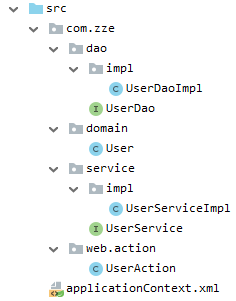
- package com.zze.domain;
- public class User {
- private Integer id;
- private String name;
- private Integer age;
- public Integer getId() {
- return id;
- }
- public void setId(Integer id) {
- this.id = id;
- }
- public String getName() {
- return name;
- }
- public void setName(String name) {
- this.name = name;
- }
- public Integer getAge() {
- return age;
- }
- public void setAge(Integer age) {
- this.age = age;
- }
- @Override
- public String toString() {
- return "User{" +
- "id=" + id +
- ", name='" + name + '\'' +
- '}';
- }
- }
com.zze.domain.User
- package com.zze.dao;
- import com.zze.domain.User;
- public interface UserDao {
- void save(User user);
- }
com.zze.dao.UserDao
- package com.zze.dao.impl;
- import com.zze.dao.UserDao;
- import com.zze.domain.User;
- public class UserDaoImpl implements UserDao {
- @Override
- public void save(User user) {
- }
- }
com.zze.dao.impl.UserDaoImpl
- package com.zze.service;
- import com.zze.domain.User;
- public interface UserService {
- void save(User user);
- }
com.zze.service.UserService
- package com.zze.service.impl;
- import com.zze.dao.UserDao;
- import com.zze.domain.User;
- import com.zze.service.UserService;
- public class UserServiceImpl implements UserService {
- private UserDao userDao;
- public void setUserDao(UserDao userDao) {
- this.userDao = userDao;
- }
- @Override
- public void save(User user) {
- userDao.save(user);
- }
- }
com.zze.service.impl.UserServiceImpl
- package com.zze.web.action;
- import com.opensymphony.xwork2.ActionSupport;
- import com.opensymphony.xwork2.ModelDriven;
- import com.zze.domain.User;
- public class UserAction extends ActionSupport implements ModelDriven<User> {
- private User user = new User();
- @Override
- public User getModel() {
- return user;
- }
- }
com.zze.web.action.UserAction
- <?xml version="1.0" encoding="UTF-8"?>
- <beans xmlns="http://www.springframework.org/schema/beans"
- xmlns:xsi="http://www.w3.org/2001/XMLSchema-instance"
- xmlns:context="http://www.springframework.org/schema/context"
- xmlns:aop="http://www.springframework.org/schema/aop"
- xmlns:tx="http://www.springframework.org/schema/tx"
- xsi:schemaLocation="http://www.springframework.org/schema/beans
- http://www.springframework.org/schema/beans/spring-beans.xsd
- http://www.springframework.org/schema/context
- http://www.springframework.org/schema/context/spring-context.xsd
- http://www.springframework.org/schema/aop
- http://www.springframework.org/schema/aop/spring-aop.xsd
- http://www.springframework.org/schema/tx
- http://www.springframework.org/schema/tx/spring-tx.xsd">
- <bean name="userService" class="com.zze.service.impl.UserServiceImpl">
- <property name="userDao" ref="userDao"/>
- </bean>
- <bean name="userDao" class="com.zze.dao.impl.UserDaoImpl">
- </bean>
- </beans>
applicationContext.xml
- <?xml version="1.0" encoding="UTF-8" ?>
- <!DOCTYPE struts PUBLIC
- "-//Apache Software Foundation//DTD Struts Configuration 2.3//EN"
- "http://struts.apache.org/dtds/struts-2.3.dtd">
- <struts>
- <package name="test" extends="struts-default" namespace="/">
- <action name="customer_*" class="com.zze.web.action.UserAction" method="{1}">
- </action>
- </package>
- </struts>
struts.xml
Spring整合Struts2
方式一:Action由Struts2自身创建
在 Action 中我们会调用业务层代码,如果按照传统方式,我们要获取到业务类实例,需要通过 Spring 工厂来手动获取,如下:
- package com.zze.web.action;
- import com.opensymphony.xwork2.ActionSupport;
- import com.opensymphony.xwork2.ModelDriven;
- import com.zze.domain.User;
- import com.zze.service.UserService;
- import org.apache.struts2.ServletActionContext;
- import org.springframework.web.context.WebApplicationContext;
- import org.springframework.web.context.support.WebApplicationContextUtils;
- public class UserAction extends ActionSupport implements ModelDriven<User> {
- private User user = new User();
- @Override
- public User getModel() {
- return user;
- }
- public String save() {
- //传统方式获取 Service
- WebApplicationContext applicationContext = WebApplicationContextUtils.getWebApplicationContext(ServletActionContext.getServletContext());
- UserService userService = (UserService) applicationContext.getBean("userService");
- System.out.println(userService);
- /*
- 访问 http://localhost:8080/customer_save,输出结果如下:
- com.zze.service.impl.UserServiceImpl@4b65044b
- */
- return NONE;
- }
- }
com.zze.web.action.UserAction
而这种方式的代码显然过于复杂,Struts2 在与 Spring 整合时 Struts2 还为我们提供了更简易的方式哦。
Spring 整合 Struts2 需要引入一个 jar 包 struts2-spring-plugin.jar,这个 jar 包在上述准备工作中就已经引入,查看该 jar 中的 struts-plugin.xml:
- <?xml version="1.0" encoding="UTF-8" ?>
- <!--
- /*
- * $Id$
- *
- * Licensed to the Apache Software Foundation (ASF) under one
- * or more contributor license agreements. See the NOTICE file
- * distributed with this work for additional information
- * regarding copyright ownership. The ASF licenses this file
- * to you under the Apache License, Version 2.0 (the
- * "License"); you may not use this file except in compliance
- * with the License. You may obtain a copy of the License at
- *
- * http://www.apache.org/licenses/LICENSE-2.0
- *
- * Unless required by applicable law or agreed to in writing,
- * software distributed under the License is distributed on an
- * "AS IS" BASIS, WITHOUT WARRANTIES OR CONDITIONS OF ANY
- * KIND, either express or implied. See the License for the
- * specific language governing permissions and limitations
- * under the License.
- */
- -->
- <!DOCTYPE struts PUBLIC
- "-//Apache Software Foundation//DTD Struts Configuration 2.3//EN"
- "http://struts.apache.org/dtds/struts-2.3.dtd">
- <struts>
- <bean type="com.opensymphony.xwork2.ObjectFactory" name="spring" class="org.apache.struts2.spring.StrutsSpringObjectFactory" />
- <!-- Make the Spring object factory the automatic default -->
- <constant name="struts.objectFactory" value="spring" />
- <constant name="struts.class.reloading.watchList" value="" />
- <constant name="struts.class.reloading.acceptClasses" value="" />
- <constant name="struts.class.reloading.reloadConfig" value="false" />
- <constant name="xwork.disallowProxyMemberAccess" value="true" />
- <package name="spring-default">
- <interceptors>
- <interceptor name="autowiring" class="com.opensymphony.xwork2.spring.interceptor.ActionAutowiringInterceptor"/>
- </interceptors>
- </package>
- </struts>
struts2-spring-plugin-2.3.37.jar!/struts-plugin.xml
可以看到在该文件中配置了如下常量:
- <constant name="struts.objectFactory" value="spring" />
查看 Struts2 的默认配置:
- #
- # $Id$
- #
- # Licensed to the Apache Software Foundation (ASF) under one
- # or more contributor license agreements. See the NOTICE file
- # distributed with this work for additional information
- # regarding copyright ownership. The ASF licenses this file
- # to you under the Apache License, Version 2.0 (the
- # "License"); you may not use this file except in compliance
- # with the License. You may obtain a copy of the License at
- #
- # http://www.apache.org/licenses/LICENSE-2.0
- #
- # Unless required by applicable law or agreed to in writing,
- # software distributed under the License is distributed on an
- # "AS IS" BASIS, WITHOUT WARRANTIES OR CONDITIONS OF ANY
- # KIND, either express or implied. See the License for the
- # specific language governing permissions and limitations
- # under the License.
- #
- ### START SNIPPET: complete_file
- ### Struts default properties
- ###(can be overridden by a struts.properties file in the root of the classpath)
- ###
- ### This can be used to set your default locale and encoding scheme
- # struts.locale=en_US
- struts.i18n.encoding=UTF-8
- ### if specified, the default object factory can be overridden here
- ### Note: short-hand notation is supported in some cases, such as "spring"
- ### Alternatively, you can provide a com.opensymphony.xwork2.ObjectFactory subclass name here
- # struts.objectFactory = spring
- ### specifies the autoWiring logic when using the SpringObjectFactory.
- ### valid values are: name, type, auto, and constructor (name is the default)
- struts.objectFactory.spring.autoWire = name
- ### indicates to the struts-spring integration if Class instances should be cached
- ### this should, until a future Spring release makes it possible, be left as true
- ### unless you know exactly what you are doing!
- ### valid values are: true, false (true is the default)
- struts.objectFactory.spring.useClassCache = true
- ### ensures the autowire strategy is always respected.
- ### valid values are: true, false (false is the default)
- struts.objectFactory.spring.autoWire.alwaysRespect = false
- ### By default SpringObjectFactory doesn't support AOP
- ### This flag was added just temporally to check if nothing is broken
- ### See https://issues.apache.org/jira/browse/WW-4110
- struts.objectFactory.spring.enableAopSupport = false
- ### if specified, the default object type determiner can be overridden here
- ### Note: short-hand notation is supported in some cases, such as "tiger" or "notiger"
- ### Alternatively, you can provide a com.opensymphony.xwork2.util.ObjectTypeDeterminer implementation name here
- ### Note: By default, com.opensymphony.xwork2.util.DefaultObjectTypeDeterminer is used which handles type detection
- ### using generics. com.opensymphony.xwork2.util.GenericsObjectTypeDeterminer was deprecated since XWork 2, it's
- ### functions are integrated in DefaultObjectTypeDeterminer now.
- ### To disable tiger support use the "notiger" property value here.
- #struts.objectTypeDeterminer = tiger
- #struts.objectTypeDeterminer = notiger
- ### Parser to handle HTTP POST requests, encoded using the MIME-type multipart/form-data
- # struts.multipart.parser=cos
- # struts.multipart.parser=pell
- # struts.multipart.parser=jakarta-stream
- struts.multipart.parser=jakarta
- # uses javax.servlet.context.tempdir by default
- struts.multipart.saveDir=
- struts.multipart.maxSize=2097152
- ### Load custom property files (does not override struts.properties!)
- # struts.custom.properties=application,org/apache/struts2/extension/custom
- ### How request URLs are mapped to and from actions
- #struts.mapper.class=org.apache.struts2.dispatcher.mapper.DefaultActionMapper
- ### Used by the DefaultActionMapper
- ### You may provide a comma separated list, e.g. struts.action.extension=action,jnlp,do
- ### The blank extension allows you to match directory listings as well as pure action names
- ### without interfering with static resources, which can be specified as an empty string
- ### prior to a comma e.g. struts.action.extension=, or struts.action.extension=x,y,z,,
- struts.action.extension=action,,
- ### Used by FilterDispatcher
- ### If true then Struts serves static content from inside its jar.
- ### If false then the static content must be available at <context_path>/struts
- struts.serve.static=true
- ### Used by FilterDispatcher
- ### This is good for development where one wants changes to the static content be
- ### fetch on each request.
- ### NOTE: This will only have effect if struts.serve.static=true
- ### If true -> Struts will write out header for static contents such that they will
- ### be cached by web browsers (using Date, Cache-Content, Pragma, Expires)
- ### headers).
- ### If false -> Struts will write out header for static contents such that they are
- ### NOT to be cached by web browser (using Cache-Content, Pragma, Expires
- ### headers)
- struts.serve.static.browserCache=true
- ### Set this to false if you wish to disable implicit dynamic method invocation
- ### via the URL request. This includes URLs like foo!bar.action, as well as params
- ### like method:bar (but not action:foo).
- ### An alternative to implicit dynamic method invocation is to use wildcard
- ### mappings, such as <action name="*/*" method="{2}" class="actions.{1}">
- struts.enable.DynamicMethodInvocation = false
- ### Set this to true if you wish to allow slashes in your action names. If false,
- ### Actions names cannot have slashes, and will be accessible via any directory
- ### prefix. This is the traditional behavior expected of WebWork applications.
- ### Setting to true is useful when you want to use wildcards and store values
- ### in the URL, to be extracted by wildcard patterns, such as
- ### <action name="*/*" method="{2}" class="actions.{1}"> to match "/foo/edit" or
- ### "/foo/save".
- struts.enable.SlashesInActionNames = false
- ### Disables support for action: prefix
- struts.mapper.action.prefix.enabled = false
- ### Blocks access to actions in other namespace than current with action: prefix
- struts.mapper.action.prefix.crossNamespaces = false
- ### use alternative syntax that requires %{} in most places
- ### to evaluate expressions for String attributes for tags
- struts.tag.altSyntax=true
- ### when set to true, Struts will act much more friendly for developers. This
- ### includes:
- ### - struts.i18n.reload = true
- ### - struts.configuration.xml.reload = true
- ### - raising various debug or ignorable problems to errors
- ### For example: normally a request to foo.action?someUnknownField=true should
- ### be ignored (given that any value can come from the web and it
- ### should not be trusted). However, during development, it may be
- ### useful to know when these errors are happening and be told of
- ### them right away.
- struts.devMode = false
- ### when set to true, resource bundles will be reloaded on _every_ request.
- ### this is good during development, but should never be used in production
- ### struts.i18n.reload=false
- ### Standard UI theme
- ### Change this to reflect which path should be used for JSP control tag templates by default
- struts.ui.theme=xhtml
- struts.ui.templateDir=template
- ### Change this to use a different token to indicate template theme expansion
- struts.ui.theme.expansion.token=~~~
- #sets the default template type. Either ftl, vm, or jsp
- struts.ui.templateSuffix=ftl
- ### Configuration reloading
- ### This will cause the configuration to reload struts.xml when it is changed
- ### struts.configuration.xml.reload=false
- ### Location of velocity.properties file. defaults to velocity.properties
- struts.velocity.configfile = velocity.properties
- ### Comma separated list of VelocityContext classnames to chain to the StrutsVelocityContext
- struts.velocity.contexts =
- ### Location of the velocity toolbox
- struts.velocity.toolboxlocation=
- ### used to build URLs, such as the UrlTag
- struts.url.http.port = 80
- struts.url.https.port = 443
- ### possible values are: none, get or all
- struts.url.includeParams = none
- ### Load custom default resource bundles
- # struts.custom.i18n.resources=testmessages,testmessages2
- ### workaround for some app servers that don't handle HttpServletRequest.getParameterMap()
- ### often used for WebLogic, Orion, and OC4J
- struts.dispatcher.parametersWorkaround = false
- ### configure the Freemarker Manager class to be used
- ### Allows user to plug-in customised Freemarker Manager if necessary
- ### MUST extends off org.apache.struts2.views.freemarker.FreemarkerManager
- #struts.freemarker.manager.classname=org.apache.struts2.views.freemarker.FreemarkerManager
- ### Enables caching of FreeMarker templates
- ### Has the same effect as copying the templates under WEB_APP/templates
- ### struts.freemarker.templatesCache=false
- ### Enables caching of models on the BeanWrapper
- struts.freemarker.beanwrapperCache=false
- ### See the StrutsBeanWrapper javadocs for more information
- struts.freemarker.wrapper.altMap=true
- ### maxStrongSize for MruCacheStorage for freemarker, when set to 0 SoftCacheStorage which performs better in heavy loaded application
- ### check WW-3766 for more details
- struts.freemarker.mru.max.strong.size=0
- ### configure the XSLTResult class to use stylesheet caching.
- ### Set to true for developers and false for production.
- struts.xslt.nocache=false
- ### Whether to always select the namespace to be everything before the last slash or not
- struts.mapper.alwaysSelectFullNamespace=false
- ### Whether to allow static method access in OGNL expressions or not
- struts.ognl.allowStaticMethodAccess=false
- ### Whether to throw a RuntimeException when a property is not found
- ### in an expression, or when the expression evaluation fails
- struts.el.throwExceptionOnFailure=false
- ### Logs as Warnings properties that are not found (very verbose)
- struts.ognl.logMissingProperties=false
- ### Caches parsed OGNL expressions, but can lead to memory leaks
- ### if the application generates a lot of different expressions
- struts.ognl.enableExpressionCache=true
- ### Indicates if Dispatcher should handle unexpected exceptions by calling sendError()
- ### or simply rethrow it as a ServletException to allow future processing by other frameworks like Spring Security
- struts.handle.exception=true
- ### END SNIPPET: complete_file
struts2-core-2.3.37.jar!/org/apache/struts2/default.properties
在第 34 行可以看到,该常量默认是关闭的,而该常量只要开启,第 38 行的常量就会生效:
- ### specifies the autoWiring logic when using the SpringObjectFactory.
- ### valid values are: name, type, auto, and constructor (name is the default)
- struts.objectFactory.spring.autoWire = name
而该配置的作用就是让 Action 可以按照变量名称自动注入 Spring 工厂中管理的实例,所以业务类实例还可通过如下方式获取:
- package com.zze.web.action;
- import com.opensymphony.xwork2.ActionSupport;
- import com.opensymphony.xwork2.ModelDriven;
- import com.zze.domain.User;
- import com.zze.service.UserService;
- public class UserAction extends ActionSupport implements ModelDriven<User> {
- private User user = new User();
- @Override
- public User getModel() {
- return user;
- }
- private UserService userService;
- public void setUserService(UserService userService) {
- this.userService = userService;
- }
- public String save() {
- System.out.println(userService);
- /*
- 访问 http://localhost:8080/customer_save,输出结果如下:
- com.zze.service.impl.UserServiceImpl@389b9f55
- */
- return NONE;
- }
- }
com.zze.web.action.UserAction
方式二:Action由Spring创建
修改配置:
- <?xml version="1.0" encoding="UTF-8"?>
- <beans xmlns="http://www.springframework.org/schema/beans"
- xmlns:xsi="http://www.w3.org/2001/XMLSchema-instance"
- xmlns:context="http://www.springframework.org/schema/context"
- xmlns:aop="http://www.springframework.org/schema/aop"
- xmlns:tx="http://www.springframework.org/schema/tx"
- xsi:schemaLocation="http://www.springframework.org/schema/beans
- http://www.springframework.org/schema/beans/spring-beans.xsd
- http://www.springframework.org/schema/context
- http://www.springframework.org/schema/context/spring-context.xsd
- http://www.springframework.org/schema/aop
- http://www.springframework.org/schema/aop/spring-aop.xsd
- http://www.springframework.org/schema/tx
- http://www.springframework.org/schema/tx/spring-tx.xsd">
- <!--
- 让 Spring 来创建 Action 实例
- 注意,Action 类要配置为多例
- -->
- <bean name="userAction" class="com.zze.web.action.UserAction" scope="prototype">
- <property name="userService" ref="userService"/>
- </bean>
- <bean name="userService" class="com.zze.service.impl.UserServiceImpl">
- <property name="userDao" ref="userDao"/>
- </bean>
- <bean name="userDao" class="com.zze.dao.impl.UserDaoImpl">
- </bean>
- </beans>
applicationContext.xml
- <?xml version="1.0" encoding="UTF-8" ?>
- <!DOCTYPE struts PUBLIC
- "-//Apache Software Foundation//DTD Struts Configuration 2.3//EN"
- "http://struts.apache.org/dtds/struts-2.3.dtd">
- <struts>
- <package name="test" extends="struts-default" namespace="/">
- <!--
- 修改 class 对应 applicationContext.xml 中 bean 的名称 (id/name)
- -->
- <action name="customer_*" class="userAction" method="{1}">
- </action>
- </package>
- </struts>
struts.xml
测试:
- package com.zze.web.action;
- import com.opensymphony.xwork2.ActionSupport;
- import com.opensymphony.xwork2.ModelDriven;
- import com.zze.domain.User;
- import com.zze.service.UserService;
- public class UserAction extends ActionSupport implements ModelDriven<User> {
- private User user = new User();
- @Override
- public User getModel() {
- return user;
- }
- private UserService userService;
- public void setUserService(UserService userService) {
- this.userService = userService;
- }
- public String save() {
- System.out.println(userService);
- /*
- 访问 http://localhost:8080/customer_save,输出结果如下:
- com.zze.service.impl.UserServiceImpl@4f543a20
- */
- return NONE;
- }
- }
com.zze.web.action.UserAction
Spring整合Hibernate
方式一:保留Hibernate配置文件
编写实体映射文件:
- <?xml version="1.0" encoding="UTF-8" ?>
- <!DOCTYPE hibernate-mapping PUBLIC
- "-//Hibernate/Hibernate Mapping DTD 3.0//EN"
- "http://www.hibernate.org/dtd/hibernate-mapping-3.0.dtd">
- <hibernate-mapping>
- <class name="com.zze.domain.User" table="user">
- <id name="id" column="id">
- <generator class="native"/>
- </id>
- <property name="name" column="name" length="32"/>
- <property name="age" column="age"/>
- </class>
- </hibernate-mapping>
com/zze/domain/User.hbm.xml
在 Hibernate 核心配置文件中引入实体映射文件:
- <mapping resource="com/zze/domain/User.hbm.xml"/>
hibernate.cfg.xml
修改 Dao 代码:
- package com.zze.dao.impl;
- import com.zze.dao.UserDao;
- import com.zze.domain.User;
- import org.springframework.orm.hibernate5.support.HibernateDaoSupport;
- // 使用 Hibernate 提供的 Dao 模板类
- public class UserDaoImpl extends HibernateDaoSupport implements UserDao {
- @Override
- public void save(User user) {
- this.getHibernateTemplate().save(user);
- }
- }
com.zze.dao.impl.UserDaoImpl
将 Hibernate 的核心工厂类实例交给 Spring 创建:
- <?xml version="1.0" encoding="UTF-8"?>
- <beans xmlns="http://www.springframework.org/schema/beans"
- xmlns:xsi="http://www.w3.org/2001/XMLSchema-instance"
- xmlns:context="http://www.springframework.org/schema/context"
- xmlns:aop="http://www.springframework.org/schema/aop"
- xmlns:tx="http://www.springframework.org/schema/tx"
- xsi:schemaLocation="http://www.springframework.org/schema/beans
- http://www.springframework.org/schema/beans/spring-beans.xsd
- http://www.springframework.org/schema/context
- http://www.springframework.org/schema/context/spring-context.xsd
- http://www.springframework.org/schema/aop
- http://www.springframework.org/schema/aop/spring-aop.xsd
- http://www.springframework.org/schema/tx
- http://www.springframework.org/schema/tx/spring-tx.xsd">
- <!--Spring 整合 Hibernate-->
- <!--引入 Hibernate 配置信息-->
- <bean name="sessionFactory" class="org.springframework.orm.hibernate5.LocalSessionFactoryBean">
- <property name="configLocation" value="classpath:hibernate.cfg.xml"/>
- </bean>
- <!--
- <bean name="hibernateTemplate" class="org.springframework.orm.hibernate5.HibernateTemplate">
- <property name="sessionFactory" ref="sessionFactory"/>
- </bean>
- -->
- <!-- 配置事务管理器 -->
- <bean id="transactionManager" class="org.springframework.orm.hibernate5.HibernateTransactionManager">
- <property name="sessionFactory" ref="sessionFactory"/>
- </bean>
- <!-- 开启注解事务 -->
- <tx:annotation-driven transaction-manager="transactionManager"/>
- <!--Spring 整合 Struts2-->
- <!--
- 让 Spring 来创建 Action 实例
- 注意,Action 类要配置为多例
- -->
- <bean name="userAction" class="com.zze.web.action.UserAction" scope="prototype">
- <property name="userService" ref="userService"/>
- </bean>
- <bean name="userService" class="com.zze.service.impl.UserServiceImpl">
- <property name="userDao" ref="userDao"/>
- </bean>
- <bean name="userDao" class="com.zze.dao.impl.UserDaoImpl">
- <property name="sessionFactory" ref="sessionFactory"/>
- <!--
- <property name="hibernateTemplate" ref="hibernateTemplate"/>
- -->
- </bean>
- </beans>
applicationContext.xml
测试:
- package com.zze.web.action;
- import com.opensymphony.xwork2.ActionSupport;
- import com.opensymphony.xwork2.ModelDriven;
- import com.zze.domain.User;
- import com.zze.service.UserService;
- public class UserAction extends ActionSupport implements ModelDriven<User> {
- private User user = new User();
- @Override
- public User getModel() {
- return user;
- }
- private UserService userService;
- public void setUserService(UserService userService) {
- this.userService = userService;
- }
- public String save() {
- userService.save(user);
- return NONE;
- }
- }
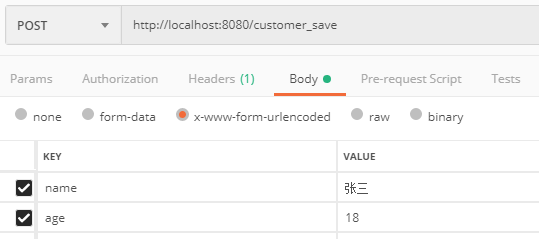
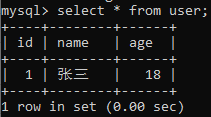
com.zze.web.action.UserAction
方式二:去除Hibernate配置文件
新建数据库连接信息属性文件:
- jdbc.driverClass=com.mysql.jdbc.Driver
- jdbc.url=jdbc:mysql:///test
- jdbc.username=root
- jdbc.password=root
jdbc.properties
删除 Hibernate 配置文件 hibernate.cfg.xml,在 Spring 配置文件中完成 Hibernate 相关配置:
- <?xml version="1.0" encoding="UTF-8"?>
- <beans xmlns="http://www.springframework.org/schema/beans"
- xmlns:xsi="http://www.w3.org/2001/XMLSchema-instance"
- xmlns:context="http://www.springframework.org/schema/context"
- xmlns:aop="http://www.springframework.org/schema/aop"
- xmlns:tx="http://www.springframework.org/schema/tx"
- xsi:schemaLocation="http://www.springframework.org/schema/beans
- http://www.springframework.org/schema/beans/spring-beans.xsd
- http://www.springframework.org/schema/context
- http://www.springframework.org/schema/context/spring-context.xsd
- http://www.springframework.org/schema/aop
- http://www.springframework.org/schema/aop/spring-aop.xsd
- http://www.springframework.org/schema/tx
- http://www.springframework.org/schema/tx/spring-tx.xsd">
- <context:property-placeholder location="classpath:jdbc.properties"/>
- <!--配置 C3P0 数据源-->
- <bean name="dataSource" class="com.mchange.v2.c3p0.ComboPooledDataSource">
- <property name="driverClass" value="${jdbc.driverClass}"/>
- <property name="jdbcUrl" value="${jdbc.url}"/>
- <property name="user" value="${jdbc.username}"/>
- <property name="password" value="${jdbc.password}"/>
- </bean>
- <!--Spring 整合 Hibernate-->
- <!--引入 Hibernate 配置信息-->
- <bean name="sessionFactory" class="org.springframework.orm.hibernate5.LocalSessionFactoryBean">
- <!-- 注入连接池 -->
- <property name="dataSource" ref="dataSource"/>
- <!-- 配置Hibernate的相关属性 -->
- <property name="hibernateProperties">
- <props>
- <prop key="hibernate.dialect">org.hibernate.dialect.MySQLDialect</prop>
- <prop key="hibernate.show_sql">true</prop>
- <prop key="hibernate.format_sql">true</prop>
- <prop key="hibernate.hbm2ddl.auto">update</prop>
- </props>
- </property>
- <!-- 设置映射文件 -->
- <property name="mappingResources">
- <list>
- <value>com/zze/domain/User.hbm.xml</value>
- </list>
- </property>
- </bean>
- <!--
- <bean name="hibernateTemplate" class="org.springframework.orm.hibernate5.HibernateTemplate">
- <property name="sessionFactory" ref="sessionFactory"/>
- </bean>
- -->
- <!-- 配置事务管理器 -->
- <bean id="transactionManager" class="org.springframework.orm.hibernate5.HibernateTransactionManager">
- <property name="sessionFactory" ref="sessionFactory"/>
- </bean>
- <!-- 开启注解事务 -->
- <tx:annotation-driven transaction-manager="transactionManager"/>
- <!--Spring 整合 Struts2-->
- <!--
- 让 Spring 来创建 Action 实例
- 注意,Action 类要配置为多例
- -->
- <bean name="userAction" class="com.zze.web.action.UserAction" scope="prototype">
- <property name="userService" ref="userService"/>
- </bean>
- <bean name="userService" class="com.zze.service.impl.UserServiceImpl">
- <property name="userDao" ref="userDao"/>
- </bean>
- <bean name="userDao" class="com.zze.dao.impl.UserDaoImpl">
- <property name="sessionFactory" ref="sessionFactory"/>
- <!--
- <property name="hibernateTemplate" ref="hibernateTemplate"/>
- -->
- </bean>
- </beans>
applicationContext.xml
测试:
- package com.zze.web.action;
- import com.opensymphony.xwork2.ActionSupport;
- import com.opensymphony.xwork2.ModelDriven;
- import com.zze.domain.User;
- import com.zze.service.UserService;
- public class UserAction extends ActionSupport implements ModelDriven<User> {
- private User user = new User();
- @Override
- public User getModel() {
- return user;
- }
- private UserService userService;
- public void setUserService(UserService userService) {
- this.userService = userService;
- }
- public String save() {
- userService.save(user);
- return NONE;
- }
- }
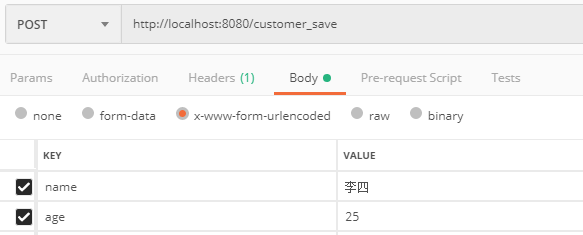
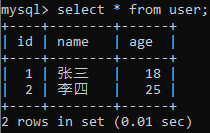
com.zze.web.action.UserAction
补充
延迟加载问题
Hibernate 是有延迟加载策略的,Spring 整合 Hibernate 后,session 的是由 Spring 管理的。当我们做一个有延迟加载的查询操作时,默认情况下在 service 层已经完成了 session 的开启与关闭操作,所以如果我们要在 web 层使用延迟加载,此时 session 是关闭的状态,会抛出如下异常:
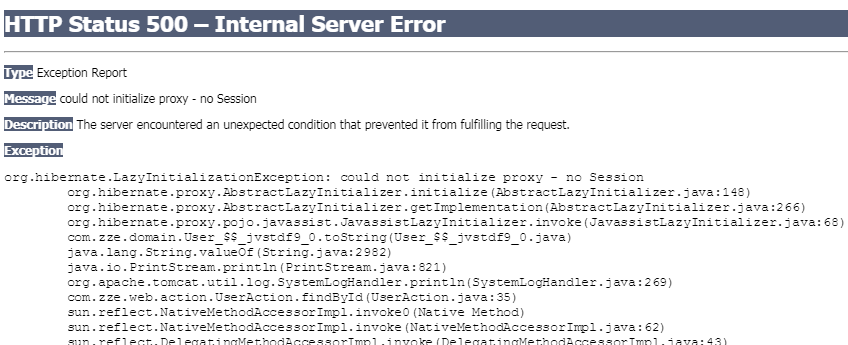
对于这个问题 Spring 也给我们提供了解决方案,只需要配置上它提供的一个过滤器即可,如下:
- <filter>
- <filter-name>openSessionInViewFilter</filter-name>
- <filter-class>org.springframework.orm.hibernate5.support.OpenSessionInViewFilter</filter-class>
- </filter>
- <filter-mapping>
- <filter-name>openSessionInViewFilter</filter-name>
- <url-pattern>/*</url-pattern>
- </filter-mapping>
WEB-INF/web.xml
抽取通用Dao
- package com.zze.dao;
- import org.hibernate.criterion.DetachedCriteria;
- import java.io.Serializable;
- import java.util.List;
- public interface BaseDao<T> {
- /**
- * 保存操作
- *
- * @param model 要保存的模型
- */
- void save(T model);
- /**
- * 更新操作
- *
- * @param model 要更新的模型
- */
- void update(T model);
- /**
- * 删除操作
- *
- * @param id 删除的 id
- */
- void delete(Serializable id);
- /**
- * 通过 id 查询单个对象
- *
- * @param id 要删除数据主键
- * @return 返回 id 对应的单个对象
- */
- T findById(Serializable id);
- /**
- * 查询所有数据
- *
- * @return 以 List 方式返回所有数据
- */
- List<T> findAll();
- /**
- * 查询数据条数
- *
- * @param detachedCriteria 离线查询对象
- * @return 数据条数
- */
- Serializable findCount(DetachedCriteria detachedCriteria);
- /**
- * 分页查询
- *
- * @param detachedCriteria 离线查询对象
- * @param begin 数据起始索引
- * @param pageSize 每页数据条数
- * @return 返回分页的珊瑚橘
- */
- List<T> findPage(DetachedCriteria detachedCriteria, Integer begin, Integer pageSize);
- }
com.zze.dao.BaseDao
- package com.zze.dao.impl;
- import com.zze.dao.BaseDao;
- import org.hibernate.criterion.DetachedCriteria;
- import org.hibernate.criterion.Projections;
- import org.springframework.orm.hibernate5.support.HibernateDaoSupport;
- import java.io.Serializable;
- import java.lang.reflect.ParameterizedType;
- import java.lang.reflect.Type;
- import java.util.List;
- public class BaseDaoImpl<T> extends HibernateDaoSupport implements BaseDao<T> {
- private Class clazz;
- public BaseDaoImpl() {
- /*
- 例: class UserDaoImpl extends BaseDaoImpl<User>
- */
- // 获取到运行时实际类 UserDaoImpl
- Class<? extends BaseDaoImpl> actualClass = this.getClass();
- // 获取到实际类父类 BaseDaoImpl<User>
- Type genericSuperclass = actualClass.getGenericSuperclass();
- // 转为参数化类型
- ParameterizedType type = (ParameterizedType) genericSuperclass;
- // 获取类型化参数 User
- Type[] actualTypeArguments = type.getActualTypeArguments();
- this.clazz = (Class) actualTypeArguments[0];
- }
- @Override
- public void save(T model) {
- this.getHibernateTemplate().save(model);
- }
- @Override
- public void update(T model) {
- this.getHibernateTemplate().update(model);
- }
- @Override
- public void delete(Serializable id) {
- this.getHibernateTemplate().delete(id);
- }
- @Override
- public T findById(Serializable id) {
- return (T) this.getHibernateTemplate().get(clazz, id);
- }
- @Override
- public List<T> findAll() {
- return (List<T>) this.getHibernateTemplate().find("from " + clazz.getSimpleName());
- }
- @Override
- public Serializable findCount(DetachedCriteria detachedCriteria) {
- detachedCriteria.setProjection(Projections.rowCount());
- List<Long> list = (List<Long>) this.getHibernateTemplate().findByCriteria(detachedCriteria);
- return list.size() > 0 ? list.get(0).intValue() : null;
- }
- @Override
- public List<T> findPage(DetachedCriteria detachedCriteria,Integer begin,Integer pageSize) {
- detachedCriteria.setProjection(null);
- return (List<T>) this.getHibernateTemplate().findByCriteria(detachedCriteria, begin, pageSize);
- }
- }
com.zze.dao.impl.BaseDaoImpl
SSH注解整合
1、导包,同上述准备工作中包。
2、配置:
- <?xml version="1.0" encoding="UTF-8"?>
- <web-app xmlns="http://xmlns.jcp.org/xml/ns/javaee"
- xmlns:xsi="http://www.w3.org/2001/XMLSchema-instance"
- xsi:schemaLocation="http://xmlns.jcp.org/xml/ns/javaee http://xmlns.jcp.org/xml/ns/javaee/web-app_4_0.xsd"
- version="4.0">
- <!--Struts2 过滤器-->
- <filter>
- <filter-name>struts2</filter-name>
- <filter-class>org.apache.struts2.dispatcher.ng.filter.StrutsPrepareAndExecuteFilter</filter-class>
- </filter>
- <filter-mapping>
- <filter-name>struts2</filter-name>
- <url-pattern>/*</url-pattern>
- </filter-mapping>
- <!--Spring 核心监听器-->
- <listener>
- <listener-class>org.springframework.web.context.ContextLoaderListener</listener-class>
- </listener>
- <!--配置 Spring 配置文件加载路径,默认加载 WEB-INF/applicationContext.xml-->
- <context-param>
- <param-name>contextConfigLocation</param-name>
- <param-value>classpath:applicationContext.xml</param-value>
- </context-param>
- </web-app>
WEB-INF/web.xml
- <?xml version="1.0" encoding="UTF-8"?>
- <beans xmlns="http://www.springframework.org/schema/beans"
- xmlns:xsi="http://www.w3.org/2001/XMLSchema-instance"
- xmlns:context="http://www.springframework.org/schema/context"
- xmlns:aop="http://www.springframework.org/schema/aop"
- xmlns:tx="http://www.springframework.org/schema/tx"
- xsi:schemaLocation="http://www.springframework.org/schema/beans
- http://www.springframework.org/schema/beans/spring-beans.xsd
- http://www.springframework.org/schema/context
- http://www.springframework.org/schema/context/spring-context.xsd
- http://www.springframework.org/schema/aop
- http://www.springframework.org/schema/aop/spring-aop.xsd
- http://www.springframework.org/schema/tx
- http://www.springframework.org/schema/tx/spring-tx.xsd">
- <context:property-placeholder location="classpath:jdbc.properties"/>
- <!--开启组件扫描-->
- <context:component-scan base-package="com.zze"/>
- <!--配置 C3P0 数据源-->
- <bean name="dataSource" class="com.mchange.v2.c3p0.ComboPooledDataSource">
- <property name="driverClass" value="${jdbc.driverClass}"/>
- <property name="jdbcUrl" value="${jdbc.url}"/>
- <property name="user" value="${jdbc.username}"/>
- <property name="password" value="${jdbc.password}"/>
- </bean>
- <!--Spring 整合 Hibernate-->
- <!--引入 Hibernate 配置信息-->
- <bean name="sessionFactory" class="org.springframework.orm.hibernate5.LocalSessionFactoryBean">
- <!-- 注入连接池 -->
- <property name="dataSource" ref="dataSource"/>
- <!-- 配置Hibernate的相关属性 -->
- <property name="hibernateProperties">
- <props>
- <prop key="hibernate.dialect">org.hibernate.dialect.MySQLDialect</prop>
- <prop key="hibernate.show_sql">true</prop>
- <prop key="hibernate.format_sql">true</prop>
- <prop key="hibernate.hbm2ddl.auto">update</prop>
- </props>
- </property>
- <!--配置映射扫描-->
- <property name="packagesToScan" value="com.zze.domain"/>
- </bean>
- <!-- 配置事务管理器 -->
- <bean id="transactionManager" class="org.springframework.orm.hibernate5.HibernateTransactionManager">
- <property name="sessionFactory" ref="sessionFactory"/>
- </bean>
- <!-- 开启注解事务 -->
- <tx:annotation-driven transaction-manager="transactionManager"/>
- <bean name="hibernateTemplate" class="org.springframework.orm.hibernate5.HibernateTemplate">
- <property name="sessionFactory" ref="sessionFactory"/>
- </bean>
- </beans>
applicationContext.xml
- jdbc.driverClass=com.mysql.jdbc.Driver
- jdbc.url=jdbc:mysql:///test
- jdbc.username=root
- jdbc.password=root
jdbc.properties
- ### direct log messages to stdout ###
- log4j.appender.stdout=org.apache.log4j.ConsoleAppender
- log4j.appender.stdout.Target=System.err
- log4j.appender.stdout.layout=org.apache.log4j.PatternLayout
- log4j.appender.stdout.layout.ConversionPattern=%d{ABSOLUTE} %5p %c{1}:%L - %m%n
- ### direct messages to file mylog.log ###
- log4j.appender.file=org.apache.log4j.FileAppender
- log4j.appender.file.File=c\:mylog.log
- log4j.appender.file.layout=org.apache.log4j.PatternLayout
- log4j.appender.file.layout.ConversionPattern=%d{ABSOLUTE} %5p %c{1}:%L - %m%n
- ### set log levels - for more verbose logging change 'info' to 'debug' ###
- # error warn info debug trace
- log4j.rootLogger= info, stdout
log4j.properties
3、使用注解:
- package com.zze.domain;
- import javax.persistence.*;
- @Table(name = "user")
- @Entity
- public class User {
- @Id
- @Column(name = "id")
- @GeneratedValue(strategy = GenerationType.IDENTITY)
- private Integer id;
- @Column(name = "name")
- private String name;
- @Column(name = "age")
- private Integer age;
- public Integer getId() {
- return id;
- }
- public void setId(Integer id) {
- this.id = id;
- }
- public String getName() {
- return name;
- }
- public void setName(String name) {
- this.name = name;
- }
- public Integer getAge() {
- return age;
- }
- public void setAge(Integer age) {
- this.age = age;
- }
- @Override
- public String toString() {
- return "User{" +
- "id=" + id +
- ", name='" + name + '\'' +
- '}';
- }
- }
com.zze.domain.User : Hibernate 实体映射注解
- package com.zze.dao.impl;
- import com.zze.dao.BaseDao;
- import org.hibernate.SessionFactory;
- import org.hibernate.criterion.DetachedCriteria;
- import org.hibernate.criterion.Projections;
- import org.springframework.beans.factory.annotation.Autowired;
- import org.springframework.orm.hibernate5.HibernateTemplate;
- import org.springframework.orm.hibernate5.support.HibernateDaoSupport;
- import javax.annotation.Resource;
- import java.io.Serializable;
- import java.lang.reflect.ParameterizedType;
- import java.lang.reflect.Type;
- import java.util.List;
- public class BaseDaoImpl<T> extends HibernateDaoSupport implements BaseDao<T> {
- /**
- * 注入 sessionFactory
- *
- * @param sessionFactory
- */
- @Autowired
- private void setSF(SessionFactory sessionFactory) {
- super.setSessionFactory(sessionFactory);
- }
- /*
- 或
- @Resource(name = "hibernateTemplate")
- private HibernateTemplate hibernateTemplate;
- */
- private Class clazz;
- public BaseDaoImpl() {
- /*
- 例: class UserDaoImpl extends BaseDaoImpl<User>
- */
- // 获取到运行时实际类 UserDaoImpl
- Class<? extends BaseDaoImpl> actualClass = this.getClass();
- // 获取到实际类父类 BaseDaoImpl<User>
- Type genericSuperclass = actualClass.getGenericSuperclass();
- // 转为参数化类型
- ParameterizedType type = (ParameterizedType) genericSuperclass;
- // 获取类型化参数 User
- Type[] actualTypeArguments = type.getActualTypeArguments();
- this.clazz = (Class) actualTypeArguments[0];
- }
- @Override
- public void save(T model) {
- this.getHibernateTemplate().save(model);
- }
- @Override
- public void update(T model) {
- this.getHibernateTemplate().update(model);
- }
- @Override
- public void delete(Serializable id) {
- this.getHibernateTemplate().delete(id);
- }
- @Override
- public T findById(Serializable id) {
- return (T) this.getHibernateTemplate().get(clazz, id);
- }
- @Override
- public List<T> findAll() {
- return (List<T>) this.getHibernateTemplate().find("from " + clazz.getSimpleName());
- }
- @Override
- public Serializable findCount(DetachedCriteria detachedCriteria) {
- detachedCriteria.setProjection(Projections.rowCount());
- List<Long> list = (List<Long>) this.getHibernateTemplate().findByCriteria(detachedCriteria);
- return list.size() > 0 ? list.get(0).intValue() : null;
- }
- @Override
- public List<T> findPage(DetachedCriteria detachedCriteria, Integer begin, Integer pageSize) {
- detachedCriteria.setProjection(null);
- return (List<T>) this.getHibernateTemplate().findByCriteria(detachedCriteria, begin, pageSize);
- }
- }
com.zze.dao.impl.BaseDaoImpl : dao 层注入 sessionFactory
- package com.zze.dao.impl;
- import com.zze.dao.UserDao;
- import com.zze.domain.User;
- import org.springframework.stereotype.Repository;
- @Repository("userDao")
- public class UserDaoImpl extends BaseDaoImpl<User> implements UserDao {
- }
com.zze.dao.impl.UserDaoImpl : dao 层实例化注解
- package com.zze.service.impl;
- import com.zze.dao.UserDao;
- import com.zze.domain.User;
- import com.zze.service.UserService;
- import org.springframework.beans.factory.annotation.Autowired;
- import org.springframework.stereotype.Service;
- import org.springframework.transaction.annotation.Transactional;
- @Transactional
- @Service("userService")
- public class UserServiceImpl implements UserService {
- @Autowired
- private UserDao userDao;
- @Override
- public void save(User user) {
- userDao.save(user);
- }
- }
com.zze.service.impl.UserServiceImpl : service 层实例化和事务注解
- package com.zze.web.action;
- import com.opensymphony.xwork2.ActionSupport;
- import com.opensymphony.xwork2.ModelDriven;
- import com.zze.domain.User;
- import com.zze.service.UserService;
- import org.apache.struts2.convention.annotation.Action;
- import org.apache.struts2.convention.annotation.Namespace;
- import org.apache.struts2.convention.annotation.ParentPackage;
- import org.apache.struts2.convention.annotation.Result;
- import org.springframework.stereotype.Controller;
- @Controller("userAction")
- @ParentPackage("struts-default")
- @Namespace("/user")
- public class UserAction extends ActionSupport implements ModelDriven<User> {
- private User user = new User();
- @Override
- public User getModel() {
- return user;
- }
- private UserService userService;
- public void setUserService(UserService userService) {
- this.userService = userService;
- }
- // 访问路径 localhost:8080/user/save
- @Action(value = "save",results = {@Result(name = "success",location = "/index.jsp")})
- public String save() {
- userService.save(user);
- return NONE;
- }
- }
com.zze.web.action.UserAction : web 层实例化和 Struts2 配置注解
属性文件值注入
- jdbc.driverClass=com.mysql.jdbc.Driver
- jdbc.url=jdbc:mysql:///test
- jdbc.username=root
- jdbc.password=root
jdbc.properties
- <?xml version="1.0" encoding="UTF-8"?>
- <beans xmlns="http://www.springframework.org/schema/beans"
- xmlns:xsi="http://www.w3.org/2001/XMLSchema-instance"
- xmlns:context="http://www.springframework.org/schema/context"
- xsi:schemaLocation="http://www.springframework.org/schema/beans
- http://www.springframework.org/schema/beans/spring-beans.xsd
- http://www.springframework.org/schema/context
- http://www.springframework.org/schema/context/spring-context.xsd">
- <context:property-placeholder location="classpath:jdbc.properties"/>
- </beans>
applicationContext.xml
- package com.zze.spring.test;
- import org.junit.Test;
- import org.junit.runner.RunWith;
- import org.springframework.beans.factory.annotation.Value;
- import org.springframework.test.context.ContextConfiguration;
- import org.springframework.test.context.junit4.SpringJUnit4ClassRunner;
- @RunWith(SpringJUnit4ClassRunner.class)
- @ContextConfiguration("classpath:applicationContext.xml")
- public class Demo {
- @Value("${jdbc.driverClass}")
- private String driverClass;
- @Value("${jdbc.url}")
- private String url;
- @Value("${jdbc.username}")
- private String username;
- @Value("${jdbc.password}")
- private String password;
- @Test
- public void test() {
- System.out.println(driverClass);
- System.out.println(url);
- System.out.println(username);
- System.out.println(password);
- /*
- com.mysql.jdbc.Driver
- jdbc:mysql:///test
- root
- root
- */
- }
- }
com.zze.spring.test.Demo
java框架之Spring(4)-Spring整合Hibernate和Struts2的更多相关文章
- 【Java EE 学习 53】【Spring学习第五天】【Spring整合Hibernate】【Spring整合Hibernate、Struts2】【问题:整合hibernate之后事务不能回滚】
一.Spring整合Hibernate 1.如果一个DAO 类继承了HibernateDaoSupport,只需要在spring配置文件中注入SessionFactory就可以了:如果一个DAO类没有 ...
- Spring Data初步--整合Hibernate
Spring Data课程中的技术介绍 Hibernate: Hibernate 是一个开放源代码的对象关系映射框架,它对 JDBC 进行了非常轻量级的对象封装,它将 pojo 与数据库表建立映射关系 ...
- Spring学习7-Spring整合Hibernate
一.Springl为什么要整合Hibernate 二者的整合主要是把hibernate中核心的一些类型交给spring管理,这些类型主要包括sessionFactory. transactionM ...
- java框架之Quartz-任务调度&整合Spring
准备 介绍 定时任务,无论是互联网公司还是传统的软件行业都是必不可少的.Quartz,它是好多优秀的定时任务开源框架的基础,使用它,我们可以使用最简单基础的配置来轻松的使用定时任务. Quartz 是 ...
- java框架之MyBatis(2)-进阶&整合Spring&逆向工程
进阶内容 准备 jdbc.url=jdbc:mysql://192.168.208.192:3306/test?characterEncoding=utf-8 jdbc.driver=com.mysq ...
- Spring再接触 整合Hibernate
首先更改配置文件 <?xml version="1.0" encoding="UTF-8"?> <beans xmlns="http ...
- java框架之SpringMVC(1)-入门&整合MyBatis
前言 SpringMVC简介 SpringMVC 是一个类似于 Struts2 表现层的框架,属于 SpringFramework 的后续产品. 学习SpringMVC的原因 SpringMVC 与 ...
- 【java框架】SpringBoot(7) -- SpringBoot整合MyBatis
1.整合MyBatis操作 前面一篇提到了SpringBoot整合基础的数据源JDBC.Druid操作,实际项目中更常用的还是MyBatis框架,而SpringBoot整合MyBatis进行CRUD也 ...
- 【java框架】SpringBoot(5)--SpringBoot整合分布式Dubbo+Zookeeper
1.理论概述 1.1.分布式 分布式系统是若干独立计算机的集合,这些计算机对于用户来讲就像单个系统. 由多个系统集成成一个整体,提供多个功能,组合成一个板块,用户在使用上看起来是一个服务.(比如淘宝网 ...
随机推荐
- 获取CPU序列号的Delphi程序
Unit CPUid; Interface Type TCpuType = (cpu8086, cpu286, cpu386, cpu486, cpuPentium); Function CpuTyp ...
- ES容易忽视的集群配置
一 前言 目前生产系统由Solr转ES了,在这边就记录下在使用过程中容易忽视的配置吧,其实我也是才用,如果有什么错误的地方,多指正. 二.配置 1.ES的段合并是限速设置 默认是20MB/s ,如果是 ...
- win10 caffe python Faster-RCNN训练自己数据集(转)
一.制作数据集 1. 关于训练的图片 不论你是网上找的图片或者你用别人的数据集,记住一点你的图片不能太小,width和height最好不要小于150.需要是jpeg的图片. 2.制作xml文件 1)L ...
- 框架源码系列五:学习源码的方法(学习源码的目的、 学习源码的方法、Eclipse里面查看源码的常用快捷键和方法)
一. 学习源码的目的 1. 为了扩展和调优:掌握框架的工作流程和原理 2. 为了提升自己的编程技能:学习他人的设计思想.编程技巧 二. 学习源码的方法 方法一: 1)掌握研究的对象和研究对象的核心概念 ...
- laravel5.8笔记二:部署
部署项目之前需要知道的几件事 1.有几个模块(admin,index,wap,api) 2.有几个数据库(mysql1,mysql2,mysql3) 3.有那些缓存(redis1,redis2,red ...
- visual studio 2019密钥
企业版:BF8Y8-GN2QH-T84XB-QVY3B-RC4DF 专业版:NYWVH-HT4XC-R2WYW-9Y3CM-X4V3Y
- IntelliJ IDEA License Server 安装使用 Mac篇
一.下载 IntelliJ IDEA 是Java开发利器,用社区版不爽,干催就用旗舰版,这个是收费的,需要licence. IntelliJ IDEA下载地址:https://www.jetbrai ...
- phpstudy 升级(更换) mysql 版本
原文链接:http://phpstudy.php.cn/jishu-php-3131.html 一.下载新版 mysql 例如 mysql5.7: https://dev.mysql.com/down ...
- 《Spring实战》学习笔记-第五章:构建Spring web应用
之前一直在看<Spring实战>第三版,看到第五章时发现很多东西已经过时被废弃了,于是现在开始读<Spring实战>第四版了,章节安排与之前不同了,里面应用的应该是最新的技术. ...
- Spring data jpa JavassistLazyInitializer 不仅是Json序列化问题.以及解决办法
最近偷点时间更新一下框架,使用SpringBoot2.0 整套一起更新一下,发现些小问题 Spring data jpa getOne 返回的是代理对象,延迟加载的,ResponseBody成Json ...
